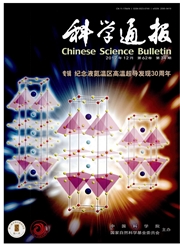

 中文摘要:
中文摘要:
我国城镇建筑热水能耗约占建筑总能耗的27%,目前热水制取以化石燃料和电能直接利用为主,存在能源利用效率低、污染物排放量大的问题.遵循“高品位能作为驱动热源、低温热水满足低温需求、自然能源合理充分利用”的原则,本团队构建了多种高效低温热水系统:(1)燃料驱动型空气源热泵系统,传统供热系统作为热泵驱动力,能实现20%-40%的节能率,投资回收期在3-7年;(2)燃料驱动型水源热泵系统,缓解土壤源系统热不平衡并减少埋管数量,减少水源系统取水量和水泵能耗;(3)复合补热型土壤源热泵系统,利用热管和热泵高效蓄存空气热能,维持土壤热平衡和系统长期高效运行;(4)复合太阳能空气源热泵系统,充分利用不同强度的太阳能和不同品位的空气热能,提高能效并降低初投资;(5)蓄热型空气源热泵系统,实现了太阳能与空气热能的优势互补,提高了可靠性和经济性;(6)数据中心余热回收热水系统,热管,热泵复合空调从机房取热进入水环,水源热泵从水环取热制取低温热水供热,节能率高达60%.上述高效低温热水系统均具有较高的节能性、可靠性和经济性,是建筑热水领域节能减排的有效技术路径.
 英文摘要:
英文摘要:
The energy used to heat urban buildings accounts for 27% of total building energy consumption in China. Current hot water production systems are mainly based on direct use of fossil fuels or electricity, which is of low primary energy efficiency and produces severe air pollution. Based on the principles of "high-grade energy as driving source, low-grade heat for low-temperature demand, and natural energy fully used", we have developed various high-efficiency, low-temperature hot water systems, including: (1) a fuel-driven, air-source heat pump system that uses existing energy as the driving power of the air-source heat pump to extract additional heat from the ambient air, achieving energy saving rates of 20%-40% and payback times of 3-7 years; (2) a fuel-driven, water-source heat pump system that can use an absorption heat pump to relieve underground thermal imbalance and reduce the required number of boreholes and consumption of the conventional electric heat pump; (3) a hybrid ground-source heat pump system with heat compensation that can store ambient heat in the ground efficiently via heat thermosyphon and heat pump modes, maintaining excellent system performance in long-term operation; (4) a hybrid solar air-source heat pump system that can make full use of solar energy of varying intensities and ambient heat with different temperatures, so as to improve system efficiency and reduce the initial investment of a conventional solar heat pump or air-source heat pump; (5) a hybrid air-source heat pump system aided by seasonal energy storage that combines advantages of solar energy and ambient heat, with enhanced heating reliability and economic feasibility relative to the normal air-source heat pump; (6) a hot water system based on heat recovery from data centers, which uses an integrated air conditioner with heat thermosyphon and heat pump modes to collect waste heat in a water loop, from which a water-source heat pump extracts heat to produce low-temperature hot water with an energ
 同期刊论文项目
同期刊论文项目
 同项目期刊论文
同项目期刊论文
 Heat recovery from Internetdata centers for space heating based on an integrated air conditioner wit
Heat recovery from Internetdata centers for space heating based on an integrated air conditioner wit Rapid identification of multiple constantly-released contaminant sources in indoor environments with
Rapid identification of multiple constantly-released contaminant sources in indoor environments with Simulation of a combined heating, cooling and domestic hot water system based on ground source absor
Simulation of a combined heating, cooling and domestic hot water system based on ground source absor A potential solution for thermal imbalance of ground source heat pump systems in cold regions: Groun
A potential solution for thermal imbalance of ground source heat pump systems in cold regions: Groun Rapid identification of single constant contaminant source by considering characteristics of real se
Rapid identification of single constant contaminant source by considering characteristics of real se Experimental investigation on charging and discharging performance of absorption thermal energy stor
Experimental investigation on charging and discharging performance of absorption thermal energy stor An algorithm to predict the transient moisture distribution for wall condensation under a steady flo
An algorithm to predict the transient moisture distribution for wall condensation under a steady flo Crystallization analysis and control of ammonia-based air source absorption heat pump in cold region
Crystallization analysis and control of ammonia-based air source absorption heat pump in cold region A new heating system based on coupled air source absorption heat pump for cold regions: Energy savin
A new heating system based on coupled air source absorption heat pump for cold regions: Energy savin Combining ground source absorption heat pump with ground source electrical heat pump forthermal bala
Combining ground source absorption heat pump with ground source electrical heat pump forthermal bala Hybrid ground source absorption heat pump in cold regions: Thermal balance keeping andborehole numbe
Hybrid ground source absorption heat pump in cold regions: Thermal balance keeping andborehole numbe Techno-economic analysis of air source absorption heat pump-Improving economy from a design perspect
Techno-economic analysis of air source absorption heat pump-Improving economy from a design perspect A fast model for identifying multiple indoor contaminant sources by considering sensor threshold and
A fast model for identifying multiple indoor contaminant sources by considering sensor threshold and Development of an integrated air conditioner with thermosyphon and the application in mobile phone b
Development of an integrated air conditioner with thermosyphon and the application in mobile phone b Energy saving potential of low temperature hot water system based on air source absorption heat pump
Energy saving potential of low temperature hot water system based on air source absorption heat pump Modeling and performanceanalysis of a two-phase thermosyphon loop with partially/fully liquid-filled
Modeling and performanceanalysis of a two-phase thermosyphon loop with partially/fully liquid-filled Evaluation of two-phasesuction, liquid injection and two-phase injection for decreasing the discharg
Evaluation of two-phasesuction, liquid injection and two-phase injection for decreasing the discharg An optimization method of sensor layout to improve source identification accuracy in the indoor envi
An optimization method of sensor layout to improve source identification accuracy in the indoor envi 期刊信息
期刊信息
